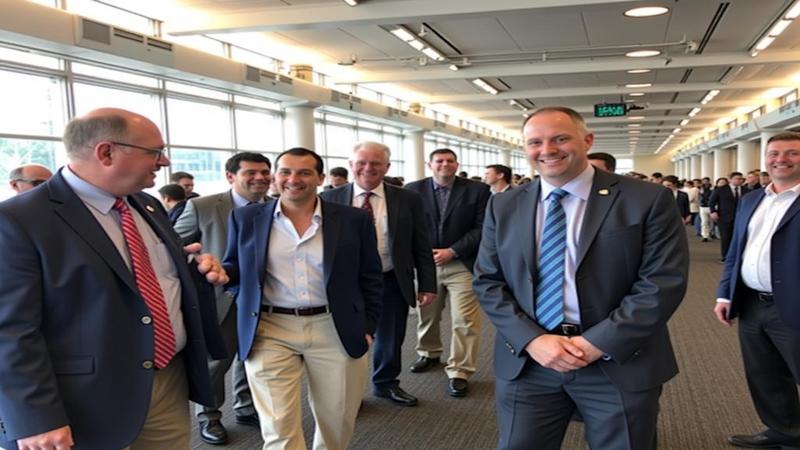Trump Deploys Real Estate Envoys To Negotiate Hostages Like a Condo Pre-Sale

In a move described as innovative, unorthodox, and possibly a dare, Donald Trump announced he will dispatch Jared Kushner and developer Steven Witkoff to the Middle East to negotiate a hostage release. The plan is reportedly to close peace like a waterfront duplex: with staged lighting, a scented candle, and a pen that never runs out of anxious ink.
America, a country that once sent generals and diplomats, is now sending mezzanine financing. If the Cold War had detente, this has escrow. Geopolitics used to be about alliances; now it’s about whether the HOA covers utilities and whether war has sufficient parking.
I watched from Gate 19 as they boarded with carry-on leverage and checked baggage fees of history. The overhead bins were stuffed with nonbinding memos and the occasional balloon payment. An airline announcement warned that turbulence may occur when crossing time zones, red lines, and the concept of expertise.
According to a source seated in 23C, the opening pitch involves a limited-time offer: release all hostages and receive two complimentary months of mutual recognition, plus a lobby level of plausible deniability. There will be coffee, there will be pastries, and there will be a brochure labeled Peace, Available in Neutral Tones.
Experts reacted by inhaling for six sustained seconds. “At least it’s consistent,” said one analyst, placing their forehead gently against a stack of treaties. “If you think everything is a deal, you bring deal people. If you think everything is a soufflé, you bring oven mitts.”
The team’s prep materials include comp sheets comparing ceasefires by square footage of calm and days-on-market for grudges. One exhibit appears to be a rendering of de-escalation with a rooftop garden, dog wash, and multipurpose room for emergencies and ribbon cuttings.

To smooth the language gap, aides tucked in a portable summit translator pen that promises to convert jargon into something like sentences. When tapped, it translates “comprehensive framework” into “we’ll circle back after lunch,” and “ironclad guarantee” into “we brought extra pens.”
The negotiating strategy is simple: build a corridor of trust, add a gym nobody uses, and stage the stairwell with plants that are definitely plastic. “We’re transforming the conflict from ground-up construction to a turnkey solution,” one insider said, carefully assembling a scale model of a ceasefire with tiny, tasteful barricades.
In case the room gets too quiet, they’re bringing an emergency backchannel satphone with preprogrammed buttons labeled “Maybe,” “We’ll Consider It,” and “Who Authorized This.” The ringtone is a soft chime that sounds like a non-denial denial.
At a practice session, the mock opposition demanded clarity, a timeline, and dignity. The team countered with a mezzanine of sympathy and a mezzuzah of plausible details. For a second, it felt like progress, until someone asked about verification and the fire alarm pulled itself.
Meanwhile, pundits back home debated whether sending developers to a hostage negotiation is peak American hubris or just Tuesday. A former ambassador suggested a compromise: pair them with someone who knows the region, or at least read the region’s instruction manual, preferably not upside down.
If all goes well, they’ll cut a ribbon on a corridor of quiet and flip the crisis in under 90 days. If it goes poorly, they’ll announce a rendering of future calm, a VIP list of invited emotions, and valet validation for anyone who cried. Closing costs apply, peace sold as-is, and—like a condo pre-sale—no one can see the view until everyone has already moved in.
